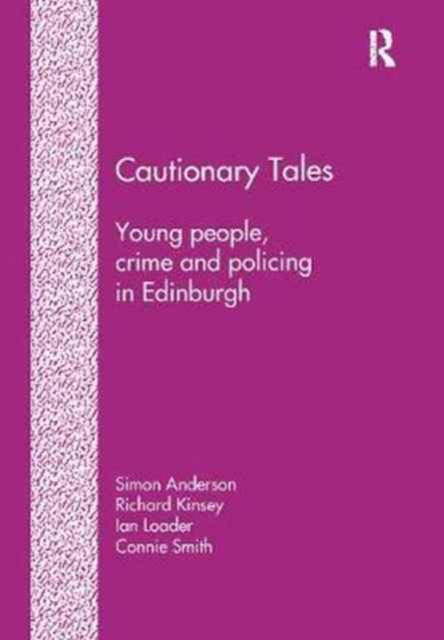
- Afhalen na 1 uur in een winkel met voorraad
- Gratis thuislevering in België vanaf € 30
- Ruim aanbod met 7 miljoen producten
- Afhalen na 1 uur in een winkel met voorraad
- Gratis thuislevering in België vanaf € 30
- Ruim aanbod met 7 miljoen producten
Zoeken
Cautionary Tales
Young People, Crime and Policing in Edinburgh
Simon Anderson, Richard Kinsey, Connie Smith
Paperback | Engels
€ 62,45
+ 124 punten
Omschrijving
Juvenile crime makes headlines. It is the stock-in-trade of politicians and pundits. But young people are also the victims of crime. They too have demands to make of the police. Drawing upon survey and interview research with 11 to 15 year-olds in Edinburgh, this book examines how crime impacts upon young people's everyday lives. It reveals that young people experience far more serious problems as victims and witnesses of crime, than they cause as offenders. It shows that they report little of their experiences of crime to the police, and are left to find their own ways of managing risk, such as telling cautionary tales about dangerous people and places. The study concludes by examining young people's relations with the police, suggesting they are over-controlled as suspects and under-protected as victims.
Specificaties
Betrokkenen
- Auteur(s):
- Uitgeverij:
Inhoud
- Aantal bladzijden:
- 180
- Taal:
- Engels
Eigenschappen
- Productcode (EAN):
- 9781138253360
- Verschijningsdatum:
- 7/06/2017
- Uitvoering:
- Paperback
- Formaat:
- Trade paperback (VS)
- Afmetingen:
- 152 mm x 229 mm
- Gewicht:
- 359 g

Alleen bij Standaard Boekhandel
+ 124 punten op je klantenkaart van Standaard Boekhandel
Beoordelingen
We publiceren alleen reviews die voldoen aan de voorwaarden voor reviews. Bekijk onze voorwaarden voor reviews.











